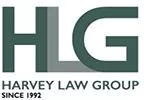The Canada Start-Up Visa ("SUV") Program has attracted entrepreneurs and their families from around the world to explore opportunities in the vibrant Canadian market. British Columbia, with its diverse economy and excellent quality of life, has become a popular destination for immigrant families.
For SUV applicants who have dependent children, they should apply for study permit for their children together with their work permit application. For parents considering enrolling their children in public schools for free in British Columbia, there are some essential points to keep in mind.
(It is important to underlined that in order to succeed under the SUV program, candidates are required to demonstrate a strong commitment toward developing their start-up business in Canada. SUV candidates must show that they are actively and personally involved in developing the start-up business and provide detailed documentations to show concrete business progress upon request. As such, SUV applicants are expected to obtain a work permit to work on their business in Canada, while waiting for Immigration, Refugees and Citizenship Canada ("IRCC") to process and assess their permanent residence application. For details about the necessary commitment under the SUV program, please refer to our previous articles on this subject: What Types of Businesses Are Welcomed Under The Start-Up Visa Program In Canada; Years 2023 To 2025: The Best Time To Immigrate To Canada, Especially Through The Start-Up Visa (SUV) Program; Canada: Three Steps To A Successful Canada Startup Visa Application. )
Eligibility Criteria
To be eligible for free public-school education in British Columbia, the parent, along with their children, must be "ordinarily resident" in British Columbia for the purpose of section 82 of the School Act.
In the context of a work permit holder parent, their work permit should be valid for one year or more, and they should be employed for at least 20 hours per week. The period of work permit granted by IRCC to SUV applicants varies, and sometimes it is shorter than one year. If the SUV applicant plans to relocate to British Columbia with their dependent children, they should ensure that the work permit granted is for a period of at least one year, in order for their children to be eligible for public school education.
The necessary documents for the enrollment process include birth certificates, passports, a valid work permit for at least one year, and proof of address.
If the parent's work permit is shorter than a year, they will need to establish that they are "ordinarily resident" for the purpose of section 82 of the School Act. The term "ordinarily resident" is not defined in the Act. According to the Ministry of Education and Child Care's Policy, the applicant must show that they have established a regular, habitual mode of life in the community with a sufficient degree of continuity. The school boards will consider the following indicia in determining whether the parent and their children are ordinarily resident in British Columbia: -
- Ownership of dwelling or long-term lease or rental of dwelling
- Residence of spouse, children and other dependent family members in the dwelling
- Legal documents indicating British Columbia residence
- Provincial driver's licence
- Employment within the community
- Parent or guardian filing income tax returns as a B.C. resident
- Provincial registration of automobile
- Canadian bank accounts or credit cards
- Links to community through religious organizations, recreational and social clubs, unions and professional organizations
- Subscriptions for life or health insurance, such as MSP coverage
- Business relationships within the community.
In light of the above, for parents under the Canada SUV Program considering enrolling their children in public schools for free in British Columbia, it is essential to familiarize themselves with the eligibility and documentation for a smooth enrollment process. Our firm, Harvey Law Group, has vast experience in assisting our clients to succeed in their Canada SUV applications, as well as providing supportive inland services to our clients to help them adapt to the new environment in Canada. If you are interested in the Canada SUV Program, you may visit here in our website for more information and contact us here. Our lawyers are based across Asia, North and South America, Europe, Africa and the Middle East to cater to your specific needs for immigration and beyond.
The content of this article is intended to provide a general guide to the subject matter. Specialist advice should be sought about your specific circumstances.


